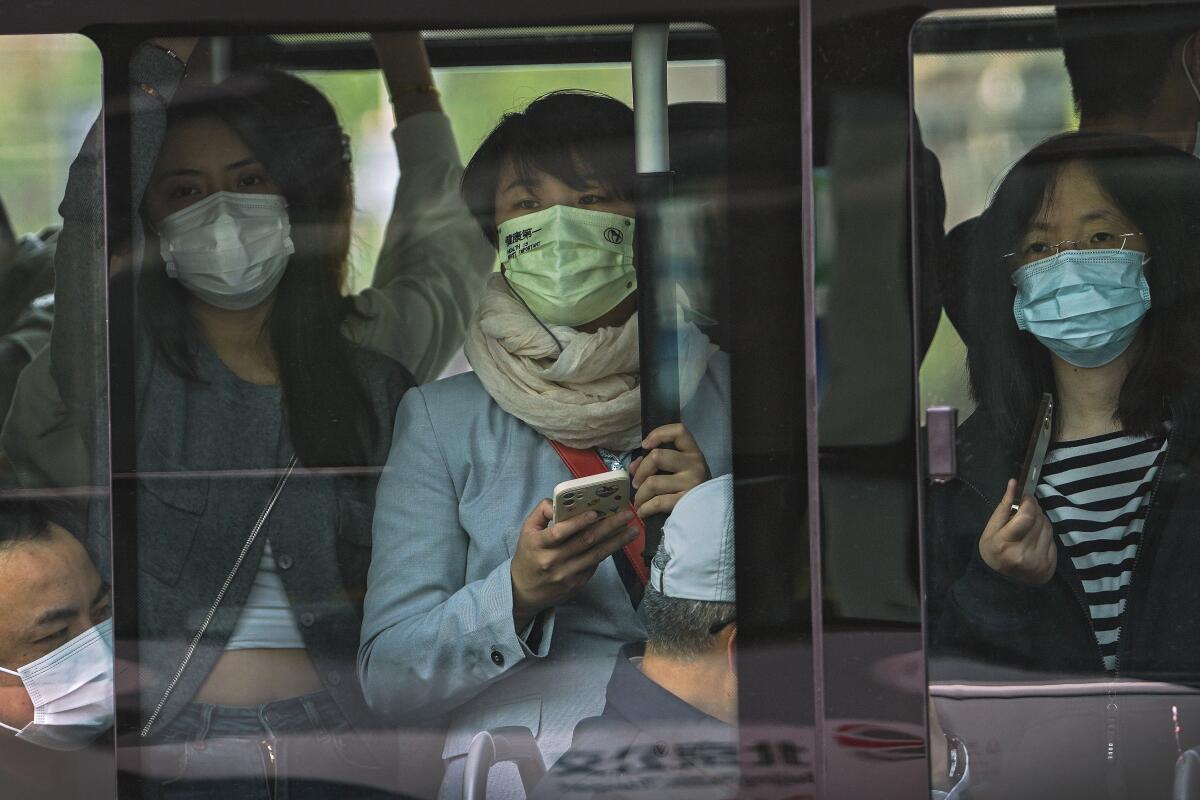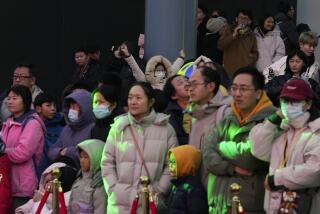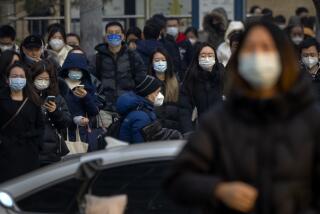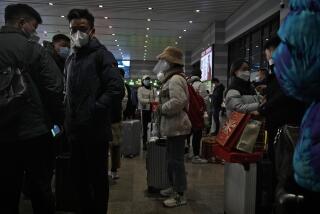Shanghai reports first deaths in current COVID-19 outbreak

- Share via
BEIJING — Shanghai authorities on Monday reported the first COVID-19 deaths in the latest outbreak in China’s most populous and wealthiest city.
All three people who died were elderly, had underlying diseases such as diabetes and hypertension and had not been vaccinated against the coronavirus, city Health Commission inspector Wu Ganyu told journalists.
“After entering hospital, their conditions grew worse and they died after attempts to save them were unsuccessful,” Wu said.
The deaths raise to 4,641 the number of people that China says have succumbed to the disease since the virus was first detected in the central city of Wuhan in late 2019.
While China has an overall vaccination rate of around 90%, a low rate among the elderly remains a concern. Only 62% of Shanghai residents over age 60 have been vaccinated, according to the latest data available. Some experts say China needs to raise that rate before it can safely live with the virus.
While highly contagious, the omicron BA.2 variant driving the Shanghai outbreak is less lethal than the previous delta variant. However, China’s low death toll from COVID-19, which is blamed for more than 988,000 deaths in the United States, has raised questions about how China’s authoritarian and often highly secretive government counts such fatalities.
Most of Shanghai’s 25 million residents are being confined to their homes for a third week as China continues to employ a “zero-tolerance” strategy to curb the outbreak, demanding isolation of anyone possibly infected.
China on Monday said 23,362 people had tested positive for the virus over the previous 24 hours, most of them showing no symptoms and almost all of them in Shanghai.
The city has reported more than 300,000 cases since late March. Shanghai began easing restrictions last week, although officials have warned that the city doesn’t have its outbreak under control.
Shanghai, which is home to China’s biggest port and most important stock exchange, appeared unprepared for such a massive undertaking.
Residents have run short of food and other daily necessities while enduring lockdown conditions, and tens of thousands of people put under medical observation have been sequestered in crowded facilities where lights are always on, garbage bins overflow, food is inadequate and hot showers nonexistent.
Anyone who tests positive but has few or no symptoms is required to spend one week in a quarantine facility.
Concerns have risen about the economic impact of the government’s hard-line policy.
China’s economic growth edged up to a still-weak 4.8% over a year earlier in the first three months of 2022 as lockdowns cut production in major industrial cities. Official data showed growth accelerated from the previous quarter’s 4%.
At a meeting Monday, Vice Premier Liu He, President Xi Jinping’s top economic advisor, pledged increased spending to stabilize supply chains and provide financial support for health workers and others on the pandemic front lines.
While the ruling Communist Party has urged more targeted prevention measures, local officials have routinely adopted stringent regulations, possibly for fear of being fired or penalized over outbreaks in their areas.
In the city of Wenzhou, which has seen only a handful of cases, authorities have authorized rewards of up to $7,800 for information about people who falsify their health status, online news site the Paper reported.
More to Read
Sign up for Essential California
The most important California stories and recommendations in your inbox every morning.
You may occasionally receive promotional content from the Los Angeles Times.













